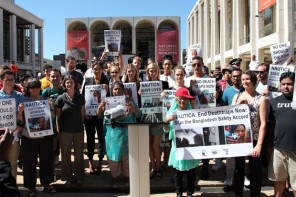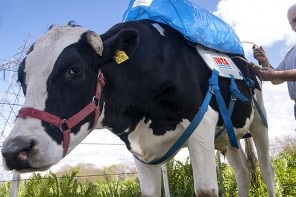Climate change has been a hotly-debated topic during the past few years, with more and more environmentalists pressuring companies and individuals to alter their practices and lifestyles in order to reduce environmental impact. Politicians around the world are also under scrutiny from top climate scientists to create regulations and draft legislation that addresses climate change and its reduction, but changes are slow to be set in motion and a significant percentage of the public remains skeptical about the validity of many climate change claims.
After a decade of devastating storms, including Hurricane Katrina in The Gulf Coast which wiped out much of New Orleans and left many people homeless, and super storm Sandy which left Manhattan flooded and the New Jersey coastline unrecognisable, the public should be growing more and more concerned about the possible effects of climate change. But are they? The past ten years have produced erratic weather patterns and natural disasters around the world, including wild fires, droughts, floods, tsunamis and hurricanes, and we’ve seen extreme temperatures worldwide. Climate scientists warn that the disastrous weather patterns will only escalate as humans continue to use the Earth and its resources unabated.
So why hasn’t there been a huge push from politicians and the general public to reform our habits and practices that are proven to contribute to climate change? According to Climate Change Challenge, the main human-generated causes of climate change are as follows:
- Transport – whether it’s driving a car, taking a bus, or flying on a plane
- Home energy usage (heating)
For many people, they don’t see any feasible alternatives to their current method of transportation. Many cities and towns were not designed to be pedestrian friendly, and public transportation is not well-developed in many cities around the world. If you’re lucky enough to live in a place with reliable, affordable public transportation, it may be possible to not own your own car and rely solely on public transport. For a large percentage of the population, however, that just isn’t a reality; people need to be able to drive to their jobs, drive their children around and do everyday tasks.
Asking people to reduce their home energy usage, particularly when it’s heating in the winter in very cold environments, is likely to result in incredulity and protest. Until there are alternative and affordable ways to keep homes warm during the winter and keep people safe from cold-related illnesses, it’s unlikely that people will reduce their home energy usage, especially during the cold months.
Scientists have repeatedly stated that the agricultural industry is a major contributor to climate change, but how does one begin to regulate an industry that is responsible for feeding a substantial portion of the world’s population and provides so many others with an income? While some individuals are willing to alter their diets and become vegans or vegetarians, it’s unrealistic to expect the rest of the world to follow suit, and many animal farmers would immediately lose their source of income.
There are signs that public attitudes are changing, however. The Huffington Post published a paper in November 2012 stating that climate change is now ‘a serious problem’ to 68% of Americans, a higher percentage than ever before. Those attitudes might reflect the concern the population has about the severe weather patterns the country has been seeing, and Americans are finally starting to pay attention to the impacts of living in an industrialised world. The Guardian, on the other hand, found that using a ‘doom and gloom’ message to try and warn people about climate change in Britain was unsuccessful.
Climate scientists will continue to warn us about the devastating effects climate change has on natural ecosystems, food supplies, human health, energy use and transportation. In order to effectively make changes in laws, legislation and regulations, climate scientists will have the challenge of presenting politicians and lawmakers with data that compels them to act. They will face resistance, as many politicians are endorsed by the very industries – oil, energy, agriculture – that climate scientists are trying to reform. But as severe weather patterns, droughts, floods and changes to the world’s food supply continue to occur with increasing intensity, politicians and citizens alike are going to reach a point where they realise that things have to change.











